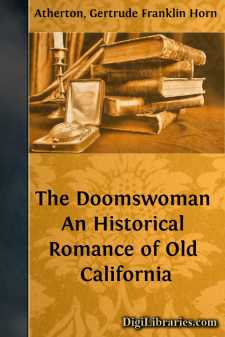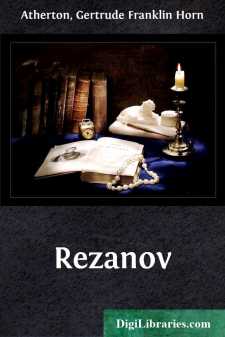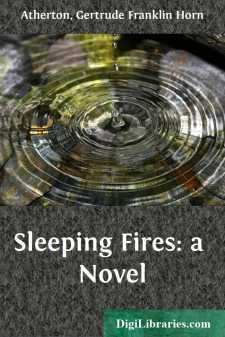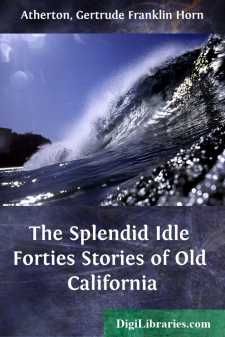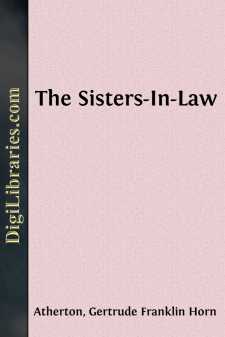Categories
- Antiques & Collectibles 13
- Architecture 36
- Art 48
- Bibles 22
- Biography & Autobiography 813
- Body, Mind & Spirit 142
- Business & Economics 28
- Children's Books 17
- Children's Fiction 14
- Computers 4
- Cooking 94
- Crafts & Hobbies 4
- Drama 346
- Education 46
- Family & Relationships 57
- Fiction 11829
- Games 19
- Gardening 17
- Health & Fitness 34
- History 1377
- House & Home 1
- Humor 147
- Juvenile Fiction 1873
- Juvenile Nonfiction 202
- Language Arts & Disciplines 88
- Law 16
- Literary Collections 686
- Literary Criticism 179
- Mathematics 13
- Medical 41
- Music 40
- Nature 179
- Non-Classifiable 1768
- Performing Arts 7
- Periodicals 1453
- Philosophy 64
- Photography 2
- Poetry 896
- Political Science 203
- Psychology 42
- Reference 154
- Religion 513
- Science 126
- Self-Help 84
- Social Science 81
- Sports & Recreation 34
- Study Aids 3
- Technology & Engineering 59
- Transportation 23
- Travel 463
- True Crime 29
The Doomswoman An Historical Romance of Old California
Description:
Excerpt
I.
It was at Governor Alvarado's house in Monterey that Chonita first knew of Diego Estenega. I had told him much of her, but had never cared to mention the name of Estenega in the presence of an Iturbi y Moncada.
Chonita came to Monterey to stand godmother to the child of Alvarado and of her friend Doña Martina, his wife. She arrived the morning before the christening, and no one thought to tell her that Estenega was to be godfather. The house was full of girls, relatives of the young mother, gathered for the ceremony and subsequent week of festivities. Benicia, my little one, was at the rancho with Ysabel Herrera, and I was staying with the Alvarados. So many were the guests that Chonita and I slept together. We had not seen each other for a year, and had so much to say that we did not sleep at all. She was ten years younger than I, but we were as close friends as she with her alternate frankness and reserve would permit. But I had spent several months of each year since childhood at her home in Santa Barbara, and I knew her better than she knew herself; when, later, I read her journal, I found little in it to surprise me, but much to fill and cover with shapely form the skeleton of the story which passed in greater part before my eyes.
We were discussing the frivolous mysteries of dress, if I remember aright, when she laid her hand on my mouth suddenly.
"Hush!" she said.
A caballero serenaded his lady at midnight in Monterey.
The tinkle of a guitar, the jingling of spurs, fell among the strong tones of a man's voice.
Chonita had been serenaded until she had fled to the mountains for sleep, but she crept to the foot of the bed and knelt there, her hand at her throat. A door opened, and, one by one, out of the black beyond, five white-robed forms flitted into the room. They looked like puffs of smoke from a burning moon. The heavy wooden shutters were open, and the room was filled with cold light.
The girls waltzed on the bare floor, grouped themselves in mock-dramatic postures, then, overcome by the strange magnetism of the singer, fell into motionless attitudes, listening intently. How well I remember that picture, although I have almost forgotten the names of the girls!
In the middle of the room two slender figures embraced each other, their black hair falling loosely over their white gowns. On the window-step knelt a tall girl, her head pensively supported by her hand, a black shawl draped gracefully about her; at her feet sat a girl with head bowed to her knees. Between the two groups was a solitary figure, kneeling with hand pressed to the wall and face uplifted.
When the voice ceased I struck a match, and five pairs of little hands applauded enthusiastically. He sang them another song, then galloped away.
"It is Don Diego Estenega," said one of the girls. "He rarely sings, but I have heard him before."
"An Estenega!" exclaimed Chonita.
"Yes; of the North, thou knowest. His Excellency thinks there is no man in the Californias like him,—so bold and so smart....


